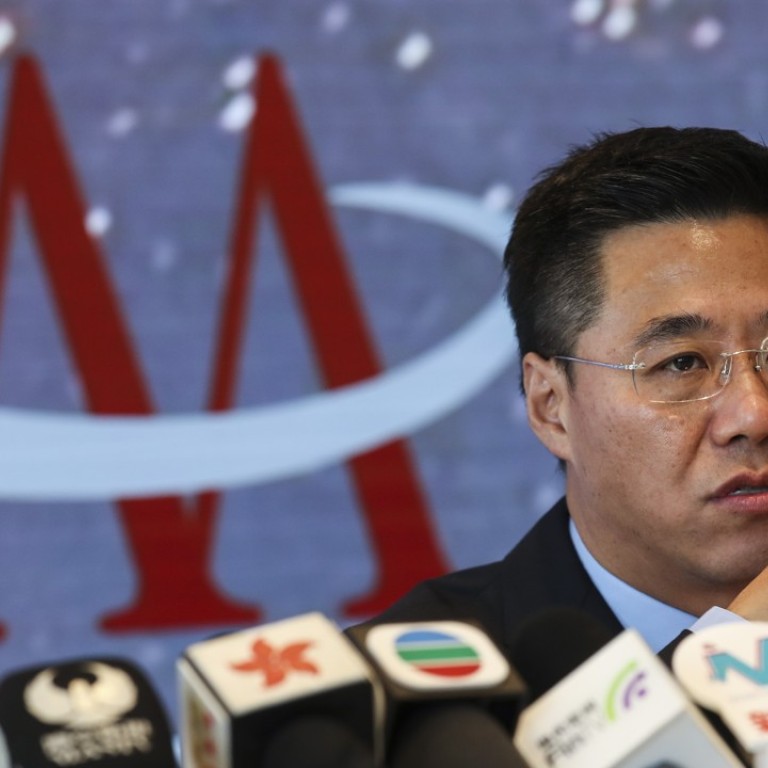
Let us help decide which overseas deals are “rational”, says China Everbright boss
EY expects China’s outward foreign direct investment to shrink by 45 per cent to around US$100 billion for the whole of 2017
Industry insiders should help regulators assess overseas deals to avoid reasonable cases being blocked, according to the head of China Everbright.
Amid a sharp devaluation of the yuan and greater capital outflows last year, Chinese regulators have issued new policies to try to control what they called “irrational” outbound investment, particularly cross-border merger and acquisition (M&A) deals.
In December, authorities including the Ministry of Commerce, the National Development and Reform Commission and the State Administration of Foreign Exchange said outbound investment in sectors such as real estate, hospitality, film, entertainment and sports would be brought under close scrutiny, and have since then discouraged deals in these and related industries.
Is it rational for a company focused on the entertainment sector to take over an overseas entertainment firm? It is within the business they are good at
“I think we really need to help the regulators tell the difference [between rational and irrational investment],” said Chen Shuang, chief executive of China Everbright, a Hong Kong listed arm of the state-owned conglomerate China Everbright Group, during a press conference on Thursday in Hong Kong.
“For example, is it rational for a company focused on the entertainment sector to take over an overseas entertainment firm? It is within the business they are good at. It is also in line with [the government’s aim of] upgrading consumption.”
China’s outbound M&A deals announced during the first half of 2017 tumbled 51 per cent from the same period of last year, to US$65.7 billion, according to Ernst & Young (EY).
“Although we see that the offshore shopping led by Chinese firms kind of stabilised this year, we do not see it declining much further,” said Loletta Chow, global leader of EY’s China overseas investment network, during the same event.
EY expects China’s outward foreign direct investment to shrink by 45 per cent from last year to around US$100 billion for the whole of 2017, she said.
By value, most overseas M&A activity conducted by Chinese companies in the first half happened in the sectors of automotive and transportation, power and utilities, technology, media and telecom, according to data from Mergemarket.
Meanwhile, the value of deals in real estate, hospitality and construction tumbled to US$400 million in the first six month, down from US$6.2 billion during the same period last year.
Britain is the destination market that saw the biggest outbound M&A deals made by Chinese companies during the first half, with the total value reaching US$15.5 billion.

